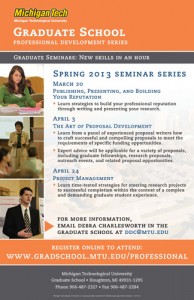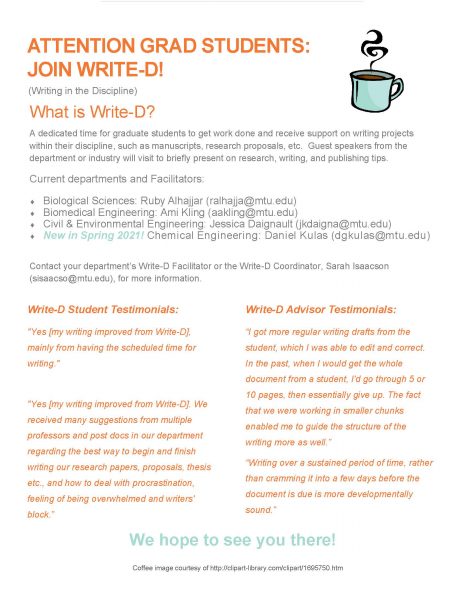Due to University holidays and staff vacations, the Graduate School will be closed from December 24 – January 3.
The Graduate School will also be closed from 11:30am – 1:30pm on Friday, December 18th.
The Graduate School’s web page can provide assistance for many questions regarding:
- Forms and deadlines to graduate in fall 2009
- Thesis and dissertation submission
- Admission to Michigan Tech
- Orientation for new students beginning in spring 2009
- Frequently asked questions (includes admissions, copyright, and thesis/dissertation)
Happy holidays and new year!

